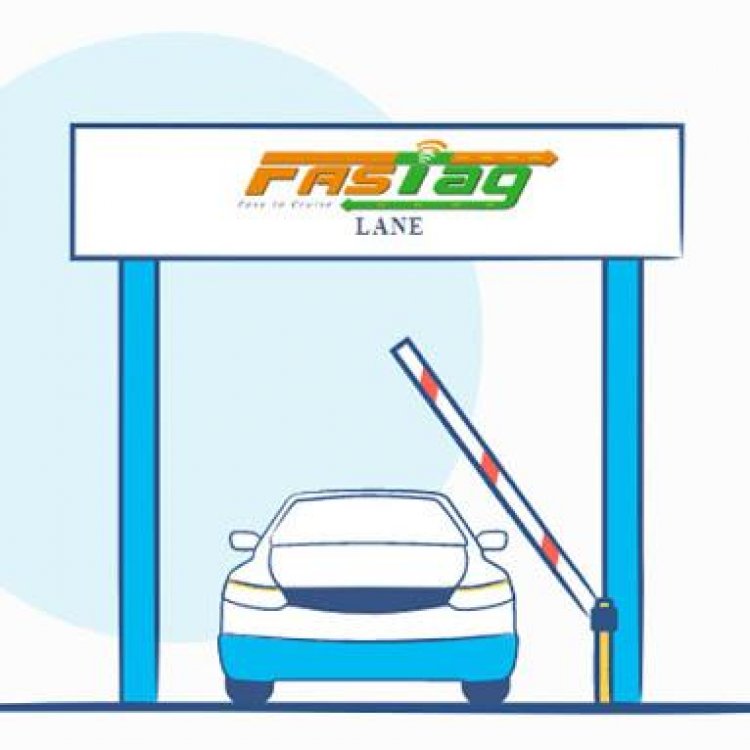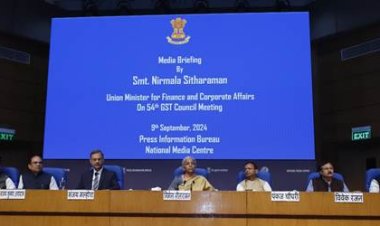Commercial vehicles get real-time data tracking- FasTag, RFID combined for E-way Bill.
With the help of FasTag and RFID government has provided GST officers with real-time data of commercial vehicle movements on the highway, this will help them to keep live surveillance on those who try to dodge GST and the vehicles on the road.

With the help of FasTag and RFID government has provided GST officers with real-time data of commercial vehicle movements on the highway, this will help them to keep live surveillance on those who try to dodge GST and the vehicles on the road.
Tax Officers have got another feature which enables them to track real-time details of e-way bill and vehicle to help them catch tax evaders who intend to misuse the e-way bill system.
It is necessary to get an e-way bill for the interstate transportation of goods valued over Rs. 50000 from April 2018, despite that Gold exempted from the GST law.
Moreover, through real-time tracking Tax officers could also interrogate if there is an elevator in respect of the E-way bill by the business. This will aid in preventing revenue leakage by real-time identification of cases of recycling of EWBs or non-generation of EWBs as well.
Any vehicle passed through the select tolls can be tracked by the officer indifference of few minutes. Also, the vehicles carrying perilous commodities specific to the state and the toll they have passed can be viewed.
On the daily basis over an average of 25 lakh, goods carrying vehicle’s motion from 800 tolls is reported to the E way bill system.
Taxmen can also view any suspicious vehicles of EWBs generated by suspicious taxpayer GSTINs through real-time tracking that have passed the selected toll. This will aid officers in seizing fraudulent transactions like bill trading, recycling of EWBs as the reports helps in conducting consistent vigilance on the business, thus resulting in an effective outcome.
AMRG Associates Senior Partner Rajat Mohan said "online real-time tracking of vehicles and goods would go a long way in tightening the lid on tax evaders. This mobile application for tax officers would empower them to catch hold of all the stakeholders involved in clandestine removal of goods."

EY India Tax Partner Abhishek Jain said CBIC had earlier conveyed its intention to further digitize the process of enforcement of e-way bill provisions under the GST law, and in line with this idea, the e-way bill has not been integrated with the FasTag and RFID system, and MIS (Management Information Systems) reports from the same will made available on officer's mobile app.
"This is a commendable move on the part of government and points towards the development in the field of technology and how the government is pro-active in using the same to ensure tax compliance and track fraudulent activities," Jain added.
In the report, Tilteld ‘E- Way Bill- A journey of Three Years” the government has said that 180 crore e-way bills have been generated in three years till March 2021. Of this, only 7 crore bills were verified by tax officers.
In the 2020-21 fiscal year, ended March 2021, 61.68 crore e-way bills were generated, of which 2.27 crore were picked up for verification.
In the 2019-20 fiscal year, ended March 2020, 62.88 crore e-way bills were generated, of which 3.01 crore were picked up for verification by tax officers.
The top five states in which generated a maximum number of e-way bills for inter-state movement of goods were generated are Gujarat, Maharashtra, Haryana, Tamil Nadu, and Karnataka.
The top five sectors where maximum e-way bills were generated in the past three years are textiles, electrical machinery, machinery and mechanical appliances, iron and steel, and automobiles.
Due to January 1, 2021 effect, the government has integrated RFID/FasTag with the e-way bill system and the shipper needs to label RFID on the vehicle and the details of the generated E waybill of the goods carried by the vehicle which is uploaded in the RFID.
The details of the vehicles get uploaded in the government portal when a vehicle passes through an RFID reader on the highway. The uploaded information later use by the revenue officials validate the supplies made by a GST registered person.
To make sure Tax adherence, the government has commenced blocking the generation of EWB if the GST registered taxpayer has not filed GSTR-3B return for the last two successive months.
Also, the government has blocked the multiple generations of E- way Bills on one invoice number.
Apart from that, the E- way bills system entitles calculation of the distance on the basis of pin codes. The system will calculate the distance of starting and ending of the journey by taking pin codes into records.


























